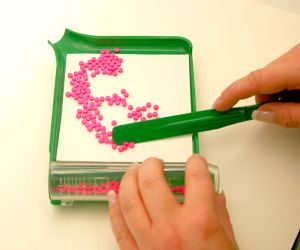
In general, when it comes to medical malpractice, most people think of lawsuits against doctors, surgeons, and hospitals accused of providing improper, or negligent, medical care. But most do not consider a significant health service provider that is crucial to a patient’s overall health and care—the pharmacist. Like any medical service provider, pharmacists have an important duty to ensure each and every patient receives the correct medications and is thoroughly informed on proper use of the prescribed drugs. All the information on a drug’s potential side effects and interactions with other medications, as well as access to the patient’s complete treatment history, essentially makes the pharmacist is the last of defense in making sure a prescription drug is administered safely and correctly.
Two recent lawsuits in Washington State allege that a pharmacy administered dosages of prescription seizure medication that were well in excess of their normal amount, putting two children in danger of losing their lives. According to one of the lawsuits, the pharmacy allegedly dispensed the medication in a single pre-filled syringe, eight times stronger than prescribed to the now 13-year-old boy. After taking the medication, the boy, significantly overdosed, became dizzy and unresponsive. He spent four days in the hospital hallucinating, according to his mother, who was terrified the incident may have residual damages to her son’s overall health.
In 2011 the boy’s prescription was changed to pills as opposed to the previously prescribed injections, but again, using the same pharmacy, he was administered the wrong dosage. This time receiving 600 mg pills when prescribed 300 mg pills. The family’s suit claims this particular pharmacy “poses an imminent public health danger by repeatedly misfiling prescriptions.”
Another family has gone through a similar experience when their 14-month-old son suffered insomnia, convulsions, and hallucinations after taking his anti-seizure medication from the same pharmacy. Treating physicians in the emergency room concluded the young boy received a dosage four times greater than prescribed. Thankfully, the young child recovered from the alleged pharmacy error.
The parent’s lawsuits against the pharmacy claim the pharmacy negligently dispensed incorrect dosages of medication to their children, but defense counsel for the pharmacy denies any wrongdoing. And further asserts that his client’s number one concern is the safety of their clientele. Also, your Charleston personal injury lawyers would like to point out that it is still up to the plaintiffs to prove that the pharmacy owed a duty of care to their sons, and prove that the pharmacy breached that duty, because at this point the claims against the pharmacy are just allegations.
Most state laws put a high duty of care on medical service professionals, including pharmacists, as their professions have very real implications on human health and life. While the law holds professionals in the medical service industry to a higher standard than non-licensed persons, it is still up to the plaintiffs in the above-mentioned cases to prove that the pharmacists made a mistake that directly caused the alleged serious injuries to their sons.
In hopes of preventing similar incidents of wrongful prescription drug injury, your Charleston, SC lawyers would like offer the following considerations. Its extremely important for parents to keep an eye out for pharmacy errors by making sure the label on the bottle matches the prescription, and ensuring the medication itself matches the description. Many of today’s prescription bottles give information on the physical qualities of the medication, such as the medication’s shape, color, and whether or not it is a tablet or capsule, when considering medications in pill form. If this information is not directly on the medication’s bottle, it should be included in the informational insert that is provided with all prescription medications.